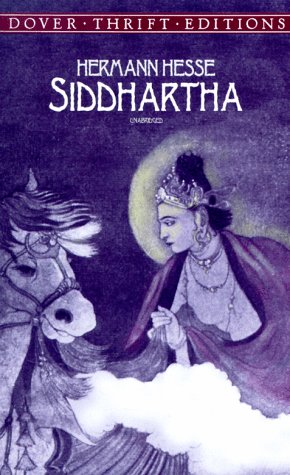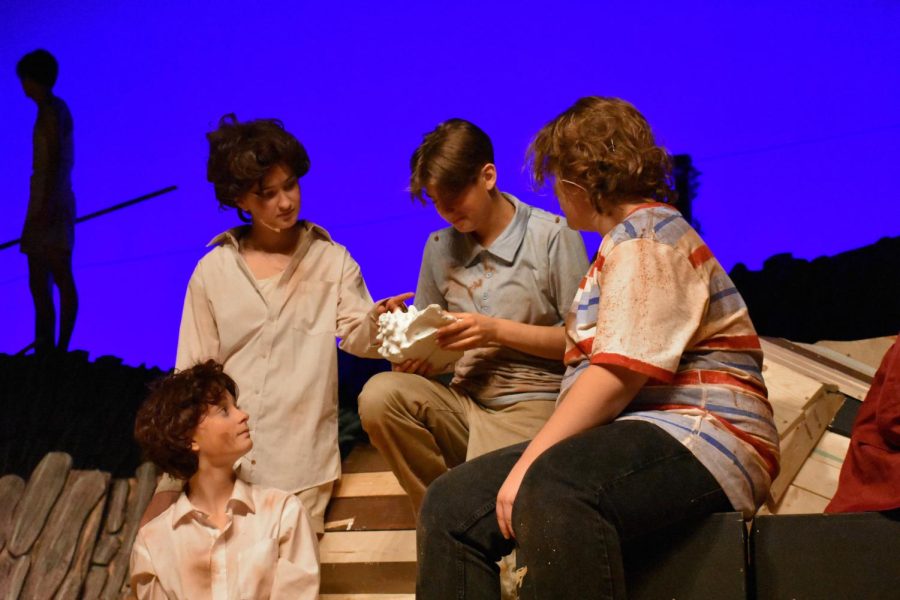By Danielle Matta
This month’s book is rated:
en·light·en·ing \in-ꞌlit-niŋ-ᵊn-iŋ\ vt: illuminating, furnishing knowledge or providing spiritual insight
Classic novels typically have negative connotations associated with them, and usually for substantial reasons too. Anything written before the 20th century tends to include language, themes, and plots that are unrelatable to modern-day teens, not to mention a pacing that, with our instant-gratification mentality, is entirely too slow for our liking. It seems that less high schoolers are picking up classics as feel-good reads because they usually require more effort, time, and patience than just renting the DVD. Instead, high schoolers view classics as ways English teachers choose to incorporate torture within the curriculum.
While reading classics for fun is simply not everyone’s cup of tea, there are some that are worthwhile for those willing to take the time. One is Siddhartha by Hermann Hesse. Originally written in German by a man exposed to Indian culture all of his life, Siddhartha surprisingly is not a story about Buddha.
Essentially, it is a relatively short novel (even for the adventurous types going for the unabridged version) about an Indian man during 540 BC who has grown up in the caste system, a social structure related to the Hindu belief of reincarnation. He decides he wants out and starts traveling and experimenting with different types of roles in society to try and find his true place in life. This man’s name — you guessed it — is Siddhartha.
Not sold yet? I don’t blame you. After all, what do most of us have in common with a character whose time period precedes us over 2,000 years? Actually, more than one would think. Stripped of all specifics, the story of Siddhartha is a story about rebirth. It is the tale of a young person trying to find himself outside of society’s predetermined realms, searching for a reason to exist spiritually, and beyond religion, for himself. This is a theme that hits a lot closer to home for most of us, as we are nearing a time in our lives when we have to answer many of the above questions for ourselves.
The most interesting part about the story is the journey the reader takes with Siddhartha through his life, observing as he grows and develops, makes mistakes, questions himself and others around him, and finds happiness in different ways. He goes from being a poor, spiritually bound, and severely disciplined samana (a wandering ascetic) to a wealthy, gambling, ill-tempered merchant to a silent and tranquil ferryman, all the while trying to truly determine how he will know if he has reached inner peace and oneness with the world, or om.
Regardless of religious belief, I think everyone can take something away from this novel, especially considering it’s chock full of inspiringly deep and linguistically beautiful quotes. It also offers a truly intellectual perspective on the worth of human beings and the circle of life. Siddhartha suffers – suffers a lot actually – and loses old friends, abandons old loves and lives – all in the search for something greater than human impulse and other emotions he considers related to “child-people.” But in the midst of all his suffering and failures, there is a consistent sense of hope, a continuing theme that every life-form has a purpose and in discovering that purpose one will find peace within themselves. Another important lesson that Siddhartha realizes early in the novel is that self-discovery and placement cannot be taught- it must be experienced and found from within.
Pretty deep stuff, I know. And for some, reading 80 pages about self-discovery and enlightenment is synonymous with English teacher-bred torture, but if there was a choice between reading Frankenstein and Siddhartha, you know which classic I would choose.






